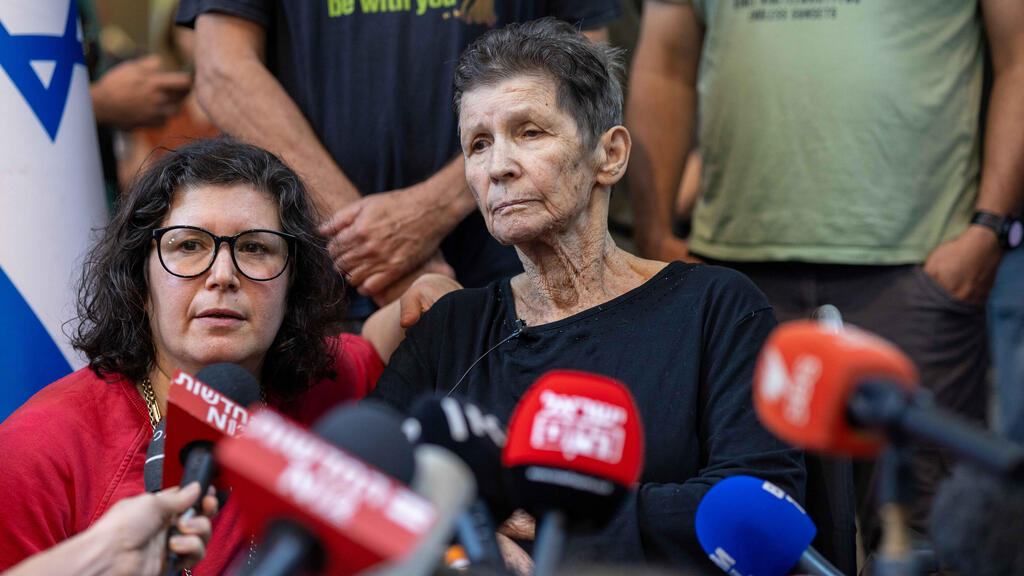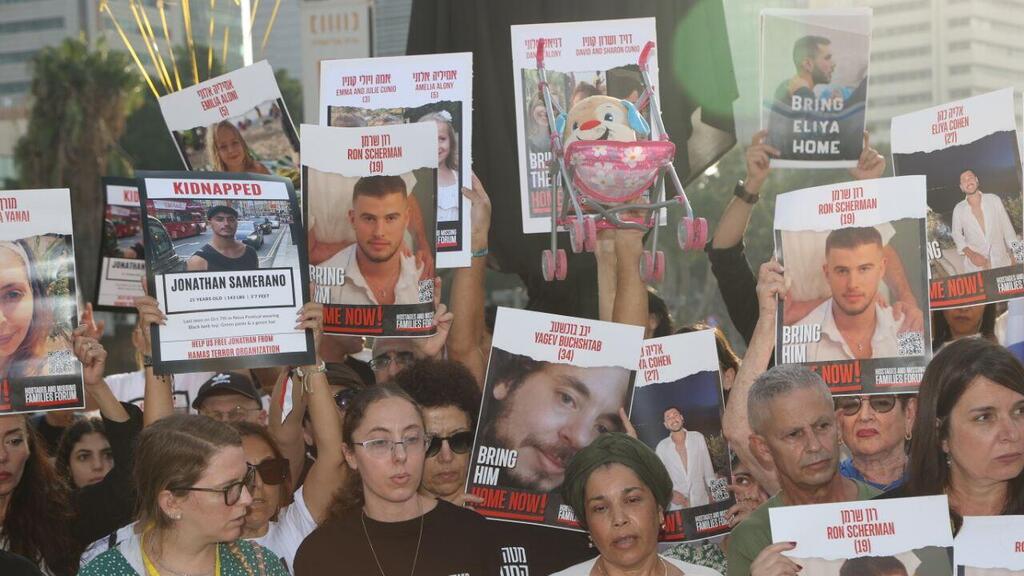Over the past two and a half weeks, Israel has been mired in a profound sense of despair. The horrifying massacre in the southern region has left the entire nation in shock. The pain of those who lost their lives, some of whom have not yet been identified, lingers. The IDF's perceived shortcomings have garnered unprecedented attention, and the government's handling of the situation has come under intense scrutiny. Nearly three weeks later, the feeling remains that there's no clear direction or control.
Read more:
In times when the state seems ineffective, we've learned that it's the citizens who step up. In a Tel Aviv office tower's seventh floor, hundreds of volunteers, alongside experts from various fields and, of course, the families of the kidnapped, have come together to form the headquarters of the families of the abducted. Much like a determined beehive, they've organized a well-oiled machine.
In one room, donations are being managed, while in another, communication experts are hard at work. Adjacent to them, a diplomatic team operates, and next door, the medical and psychological support teams are on standby. It's a hive of activity, each room serving a vital purpose. The absence of bureaucracy or red tape is conspicuous - in this war, there's no room for such hindrances.
What started as an initiative by communication consultant Ronen Tzur and attorney David Zalmanovich has evolved into a mobilized force of laptops and a single mission: bringing the kidnapped back home.
The recent press conference by the kidnapped Yochved Lifshitz at Tel Aviv Sourasky Medical Center has once again left the nation perplexed. Just weeks ago, many of us were confident that after two and a half weeks, the official authorities would effectively take control of the press conference regarding the 85-year-old woman who was recently released from Hamas captivity. However, we were proven wrong, and when everything spiraled out of control, the official entities began passing the responsibility back and forth.
2 View gallery


Yochved Lifshitz speaking to the press after being released from Hamas captivity
(Photo: Tal Sahar)
The IDF Spokesperson's Unit doesn't seem to handle civilians, the Shin Bet briefed but did not remain to accompany, the hospital blamed the prime minister's spokesperson, and Gal Hirsch the special coordinator for returning the hostages couldn't find the time to talk to her. The recent event, even if it wasn't a PR disaster (which it was), has inflicted an immense blow on the Israeli citizens' sense of security. It's no longer just disheartening; it's frightening.
The civil struggle of the families of the kidnapped and missing stands as a beacon of optimism in a sea of failures. It serves as a prime example of how Israel should have managed during a crisis, how an organization can operate effectively amidst the turmoil, and how, sometimes, five seconds of watching the live broadcast of the Knesset Finance Committee's deliberations is enough to realize that the left hand has no clue what the right hand is doing.
"We are a committee that needs to provide answers to the public!" admonished the frustrated Moshe Gafni, the committee's chairman, to the representatives of the ministries who couldn't deliver the necessary answers. Perhaps they should take a moment to visit the seventh floor in Tel Aviv, traverse the rooms, and learn how to do it right.



